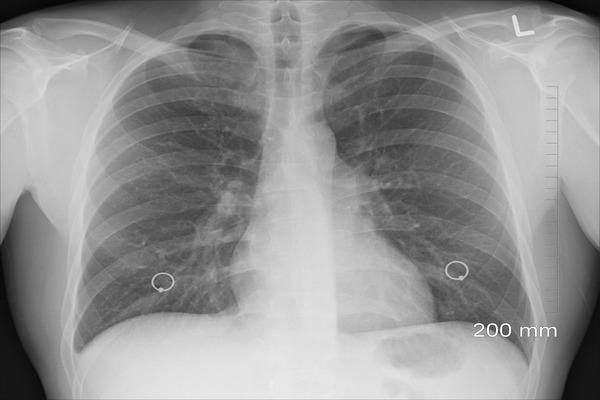
Scientists are working very hard to make cancer a thing of the past, and one of the most exciting areas of research right now has to do with vaccines. Treating cancer with a vaccine falls under the umbrella of immunotherapy, in which the body’s natural defense mechanisms are activated against the spread of cancer cells. This is critical because under normal circumstances, cancer cells have a type of shield around them that makes them invisible to the immune system.
Currently there is one cancer vaccine in use for patients with prostate cancer. Called Sipuleucel-T (or Provenge), it is showing great results in men whose cancer has not responded to any other treatment. But this vaccine is just the start. Clinical trials on vaccines for the following 10 types of cancer are underway. Read on for the encouraging results.
1. Bladder cancer
Certain bladder cancers have cells called HER2 living on the surface of tumors. Researchers are currently working on a vaccine made from a virus modified to contain this type of cell. The idea is that the virus can teach the immune system to find and destroy the tumors. The studies are looking at the difference in results between standard bladder cancer therapy and standard therapy with a vaccine added.
2. Brain tumors
Brain tumors can be extremely tricky to treat simply because of how vital an organ the brain is. Surgery may not be possible if a tumor resides in an area that cannot be touched and still sustain life. Multiple vaccine studies are going on in terms of brain cancer, including some focused on newly diagnosed cancer and some in regard to recurring cancer. Several of them involve children and teenagers.
3. Female reproductive

There are several studies aimed at eradication of female reproductive cancers that are in different stages. The FDA has approved HPV vaccines, which can help prevent the development of cervical cancer in women and penis cancer in men. There are trials currently underway that look at vaccines for breast cancer, used alone or in conjunction with other therapies. And other teams are working to get trials started for breast cancer prevention vaccines.
4. Colorectal cancer
Colorectal cancer is one of the deadliest forms. Certain antigens are found to be present in colorectal cancer cells, including carcinoembryonic antigen (CEA), MUC1, guanylyl cyclase C, and NY-ESO-1. (Antigens are basically any substance that provokes an immune response in the body.) Scientists are in the process of creating vaccines to treat colorectal cancer by training the body to attack cells with these antigens.
5. Kidney cancer
The treatment of kidney cancer is being attacked on all sides by the development of multiple vaccines. Some are made from proteins that live on the surface of kidney cancer cells, or else from blood vessel cells within the tumor. Vaccines meant to prevent late-stage kidney cancer from recurring are in clinical trials. There is also a custom-made vaccine that patients may receive after surgery that is made from their own tumor.
6. Leukemia
There are several different forms of leukemia, which is basically a blood cancer. Researchers are attempting to design vaccines for specific types of leukemia like acute myeloid leukemia and chronic lymphocytic leukemia. Some are simply meant to support other treatments such as stem cell transplants. Work is also underway on personally customized vaccines for leukemia that may boost the individual’s immune system.
7. Lung cancer

Vaccines meant to treat lung cancer are targeting specific antigens, much like vaccines for colorectal cancer. In clinical trials now are vaccines that go after MAGE-3 antigens, which are found in 42% of lung cancer cases, and NY-ESO-1, present in 30% of lung cancers. Not content with working on just the most common lung cancer antigens, further vaccines target several less common ones.
8. Melanoma
Vaccines in testing for the skin cancer melanoma are offered alone or in combination with other treatments. The vaccines work on the principle that destroyed melanoma cells plus antigens are able to train the immune system to destroy any melanoma cell it encounters. Several slightly different vaccines for skin cancer are in development.
9. Myeloma
Multiple myeloma is a blood cancer similar to leukemia. Clinical trials are currently working on vaccines for people who are near remission or who have smoldering myeloma, which occurs early in the disease before there has been any organ damage. Vaccines are also in production for patients who need to have an autologous stem cell transplant, in which stem cells are harvested before subjecting the body to chemotherapy, so that healthy cells may be returned to the bloodstream later.
10. Pancreatic cancer
Several types of vaccines are in development for this deadly form of cancer, which has few symptoms in its early, most treatable stages. The medicine aims to improve the immune system’s response to pancreatic cancer cells. Currently, patients are either receiving the vaccine in combination with other treatments or by itself.

Vaccines designed to treat cancer are a bit different from the vaccines that we use to prevent disease. These so-called prophylactic vaccines have been very successful in preventing the spread of viral diseases and are given to healthy people. Cancer vaccines, however, are not usually meant to prevent cancer but to help the body’s immune system kill harmful cells where they already exist.
There has been a long history of experimentation with cancer vaccines and many failures along the way. But hope remains as recent advances in the field of immunotherapy show great promise. Early results in vaccine treatment of these 10 cancers are certainly encouraging and we will continue to watch what happens as trials progress.
